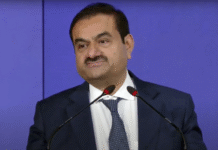New Delhi–Common people across India continued to suffer on Monday with millions scrambling for cash to meet basic needs even as Prime Minister Narendra Modi defended the ban on high value notes, saying the move had given sleepless nights to those with ill-gotten wealth.
Addressing a public rally in Ghazipur in Uttar Pradesh, Modi said that as a result of demonetising 500 and 1,000 rupee notes, the poor were sleeping well and those who had unaccountd money were buying sleeping pills.
But on the streets of Delhi and elsewhere in the country, common people continued to bear the trauma of cashlessness for a sixth day after the surprise decision was announced on November 8 night.
Many fear that the cash crisis, despite Modi on Sunday asking people to be patient for 50 days, may continue longer than that. Going by the rate at which fresh currency is being disbursed to banks, at least four months are needed to replace demonetised notes, some experts said.
The hardships of the common people deepened on Monday as most banks in northern India were shut on account of Guru Nanak Dev Jayanti. Partly as a result, many ATMs could not be refurbished with fresh cash. And the machines which had money ran dry quickly as people waited in long queues.
Rajesh Kumar, a private company’s employee in Noida near Delhi, said he withdrew Rs 2,500 – the maximum allowed – from an ATM “almost miraculously” after two days of managing his life with little cash.
“While I was coming down from the Sector 16 metro station, I saw a cash loading van approaching an ATM. I ran and was the first person to wait,” Rajesh Kumar told IANS.
“Others gathered in no time and it became a long queue. Someone from the van announced that only Rs. 1 lakh was being loaded in the ATM which meant only the first 40 in the queue would be able to draw Rs 2,500 each. Others left disappointed.”
But most others were not as lucky as him.
Anand Tokas, a south Delhi resident and a father of three, said he somehow managed to survive the last few days on Rs 2,000 in smaller denominations his kids had saved from their pocket money.
“Now I have nothing. If I don’t withdraw cash today, I will have nothing to buy even basic essentials,” said Tokas, a gym owner.
The demonetisation also hit businesses hard across the nation.
According to the Confederation of All India Traders, post-demonatisation trade in markets across the country had plunged to “25 per cent in comparison to normal days”.
Anil Chopra, 42, who runs a departmental store in Greater Noida, said his losses were more than the estimate. He said sales at his store had fallen 50 per cent because people didn’t have cash and “not everyone is able to pay through credit and debit cards”.
The situation was no better in other major cities including Mumbai, Chennai, Bengaluru, Kolkata and Hyderabad as well as innumerable smaller towns where the ATM ratio is very poor.
“I neither have a debit nor credit card. No kirana (grocery) shop is accepting the old notes,” complained Pochamma, a housewife. She had come to exchange notes at the State Bank of India branch in Hyderabad’s Toli Chowki but returned disappointed.
The cash crisis also bedeviled people in several north-eastern states, especially in rural and remote areas.
“We are yet to get sufficient new Rs 2,000 denomination currency as well as old Rs 100 and smaller denomination notes, causing serious problems,” a top official of United Bank of India told IANS. (IANS)






